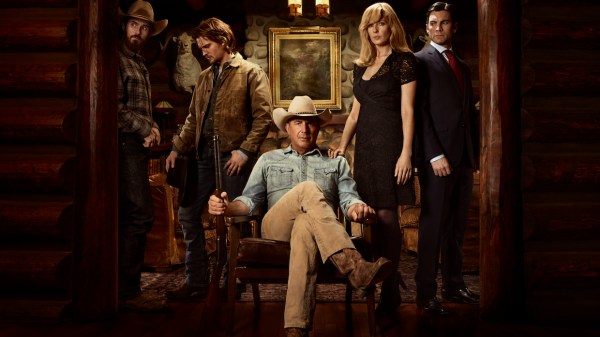
The Montana wind, a constant, mournful voice across the sprawling Dutton ranch, whispers tales of blood, soil, and unbreakable will. In the world of Yellowstone, every character is a testament to the land's unforgiving beauty and fierce demands. Among them, Finn Little's portrayal of Carter emerged not just as a side character, but as a raw, poignant embodiment of the show's core themes. His rumored return in a future Yellowstone prequel isn't merely a casting decision; it's a profound narrative statement, offering a potent glimpse into the enduring legacy and evolving soul of the Dutton saga.
Carter, introduced as a lost, troubled boy ejected from a broken foster system, found an unlikely, volatile haven under the wing of Beth Dutton. He arrived a damaged, unkempt echo of humanity, mirroring, in many ways, the unpolished, brutal reality of the ranch itself. His arc in Yellowstone was a masterclass in silent transformation: from resentful outsider to grudging, then fiercely loyal, apprentice. He became the closest thing Beth had to a son, and by extension, Rip's reluctant protégé. His return in a prequel, presumably set in a time after the current Yellowstone timeline but before a definitive end, signals a crucial continuation, bridging eras and solidifying thematic pillars.
Firstly, Carter’s reappearance immediately elevates the theme of legacy beyond blood. The Dutton lineage, as seen in 1883, 1923, and the flagship series, is often marked by tragic loss and a diminishing direct bloodline. Tate is the last of the Yellowstone Duttons, but his connection to the ranch is tenuous and often fraught. Carter, however, represents the chosen family, the individuals grafted onto the Dutton tree by circumstance, loyalty, and the land itself. Like Rip Wheeler before him, Carter is not born a Dutton but becomes one through an intense, often painful, forging process. His return indicates that the ranch's future, its very survival, may not rest solely on genetic inheritance but on the fierce devotion of those who pledge their lives to it, regardless of their last name. It underlines the idea that the "Dutton" way of life is more a creed than a birthright.
Secondly, Carter's role deepens the exploration of the cycle of violence and redemption. He arrived at the ranch broken, carrying the scars of a harsh world. The Yellowstone, in turn, is a place of brutal lessons, where survival often means embracing one's own capacity for aggression. Carter learning to ride, to work, to obey, to fight, mirrors Rip’s own journey. His return in a prequel suggests that this path continues, that he has fully integrated into the ranch's demanding ethos. Will he become another iteration of Rip – the loyal enforcer, the silent protector? Or will he find a way to break or subtly alter that cycle? His continued presence offers the narrative a chance to explore the long-term psychological impact of the Yellowstone life on a young soul, and whether the ranch truly offers redemption or merely transmutes one form of brokenness into another, albeit more functional, one.
Finally, Carter’s return serves as an anchor for the future of the ranch and its spirit. The beauty of the Yellowstone universe lies in its multi-generational narrative. 1883 showed its founding, 1923 its early struggles, and Yellowstone its modern-day fight for survival. A prequel featuring Carter would push the timeline further into the future, providing a much-needed glimpse of what becomes of the land and its caretakers when John, Beth, and Rip are no longer at the helm. Carter, having been shaped by their tutelage, would embody the living memory of their struggles and triumphs. He would be the torchbearer, not just of the physical land, but of the values – however twisted or noble – that have sustained the Duttons for over a century: fierce independence, unwavering loyalty, and an unyielding defense of what's theirs.
Finn Little returning as Carter is more than just a welcome face for fans. It's a deliberate narrative choice that reinforces Yellowstone's foundational themes. It promises to explore the ongoing complexities of legacy, the potent dynamics of chosen family, and the enduring, often brutal, spirit of the land that shapes all who serve it. Carter's journey, stretching into a new chapter, means the story of the Yellowstone is far from over; it’s merely continuing its relentless, vital ride across the Montana plains.
